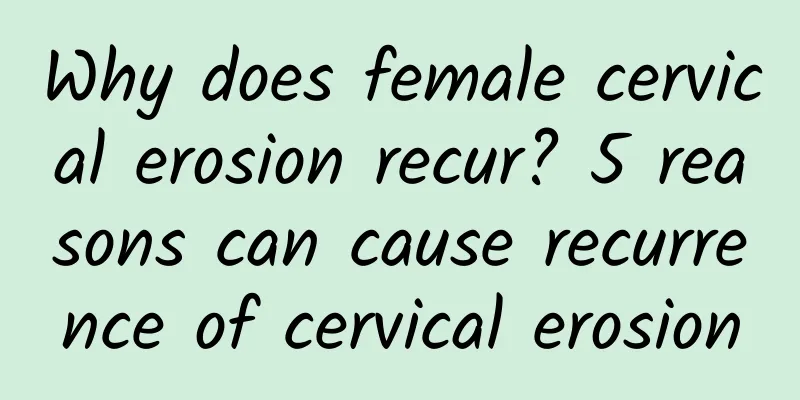What is malignant uterine fibroids

|
Uterine fibroids are common benign tumors of the female reproductive organs, composed of smooth muscle and connective tissue. Common symptoms are changes in menstrual volume, increased menstrual volume, or prolonged bleeding time. Malignant uterine fibroids refer to sarcomatous changes in uterine fibroids. The malignant transformation of uterine fibroids into sarcomas is relatively rare, only 0.4% to 0.8%, and is more common in postmenopausal uterine fibroids with pain and bleeding. If a postmenopausal woman's uterine fibroids increase in size, she should be alert to the possibility of worsening fibroids. After uterine fibroids worsen, the tissue becomes soft and brittle, and the cut surface is gray-yellow, like raw fish, with unclear boundaries with surrounding tissues. If sarcomatous changes in uterine fibroids are suspected or discovered, timely surgery is required. What medicine treats uterine fibroids? Uterine fibroids are common benign tumors in gynecology and are generally asymptomatic. Treatment should be based on age, symptoms, and fertility requirements, as well as the type, size, and overall quality of life of the fibroids. Asymptomatic uterine fibroids generally do not require treatment. Especially for women approaching menopause, uterine fibroids can shrink and symptoms disappear after menopause. Follow-up visits are conducted every 3 to 6 months. If there are symptoms, further treatment can be performed. Drug treatment is suitable for women approaching menopause, with mild symptoms, or whose systemic conditions are not suitable for surgery. Personnel can release gonadal hormone analogs and mifepristone. Can I drink coffee if I have uterine fibroids? Women with uterine fibroids can drink coffee, and its ingredients will not affect uterine fibroids, will not make uterine fibroids grow, or uterine fibroids become cancerous. But some people who drink coffee cannot drink coffee, such as those with severe hypertension, coronary heart disease, arteriosclerosis and other diseases. Long-term or large amounts of coffee can cause blood cardiovascular disease, elderly women may also reduce calcium and cause osteoporosis, and women in menopause need to increase calcium tenfold every day. Drinking too much coffee for stomach problems will cause stomach problems to worsen, and drinking coffee for pregnant women may cause fetal malformations. Uterine fibroids are caused by estrogen in the body, and coffee will not have adverse effects on uterine fibroids. |
<<: What is the reason for blood clots like meat in menstruation?
>>: Is adenomyosis recovering well?
Recommend
There are 8 ways to lose weight without asking for help and increase your basal metabolic rate
8 Ways to Increase Your Basal Metabolic Rate Tip ...
Experts' overview of the causes of ectopic pregnancy
Nowadays, many women have ectopic pregnancies, an...
Diagnostic principles for oligomenorrhea in patients with irregular menstruation
If the menstrual bleeding volume of patients with...
How much does physical therapy for Bartholinitis cost?
How much does it cost to treat Bartholinitis? Bec...
What should I pay attention to in my diet if I have cervical warts?
Everyone must know the harmfulness of cervical wa...
The secret of a famous doctor to look 15 years younger: Do this exercise every day to rejuvenate your blood vessels!
Cardiovascular diseases such as stroke and myocar...
Mobile phone radiation is the accomplice of women's menstrual irregularities
Hanging a turned-on mobile phone on the chest wil...
Starch phobia? Ketoacidosis may lead to weight gain
Speaking of weight loss methods that are loved by...
Exercise method for late stage of cervicitis
After the treatment of cervicitis, we should also...
After a big meal during the Chinese New Year, have a cup of "green latte" for breakfast to detoxify and lose weight
Preparing a sumptuous New Year’s Eve dinner is a ...
How long can you live after uterine fibroids become cancerous?
The survival time after uterine fibroids become c...
Causes of Polycystic Ovarian Disease
Polycystic ovary syndrome is a common syndrome in...
Eat a lot of delicacies during the Mid-Autumn Festival, but your weight drops sharply? ! 5 Diet Tips to Eat Healthy and Without Burden
The Mid-Autumn Festival is approaching, and we of...
Less than 400 calories! DIY Italian warm salad is delicious and nutritious
Italian Caprese Salad (320kcal) Adding chicken br...
Overview of Bacterial Vaginosis
Bacterial vaginosis is a common disease among fem...









